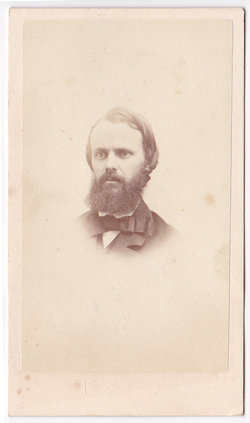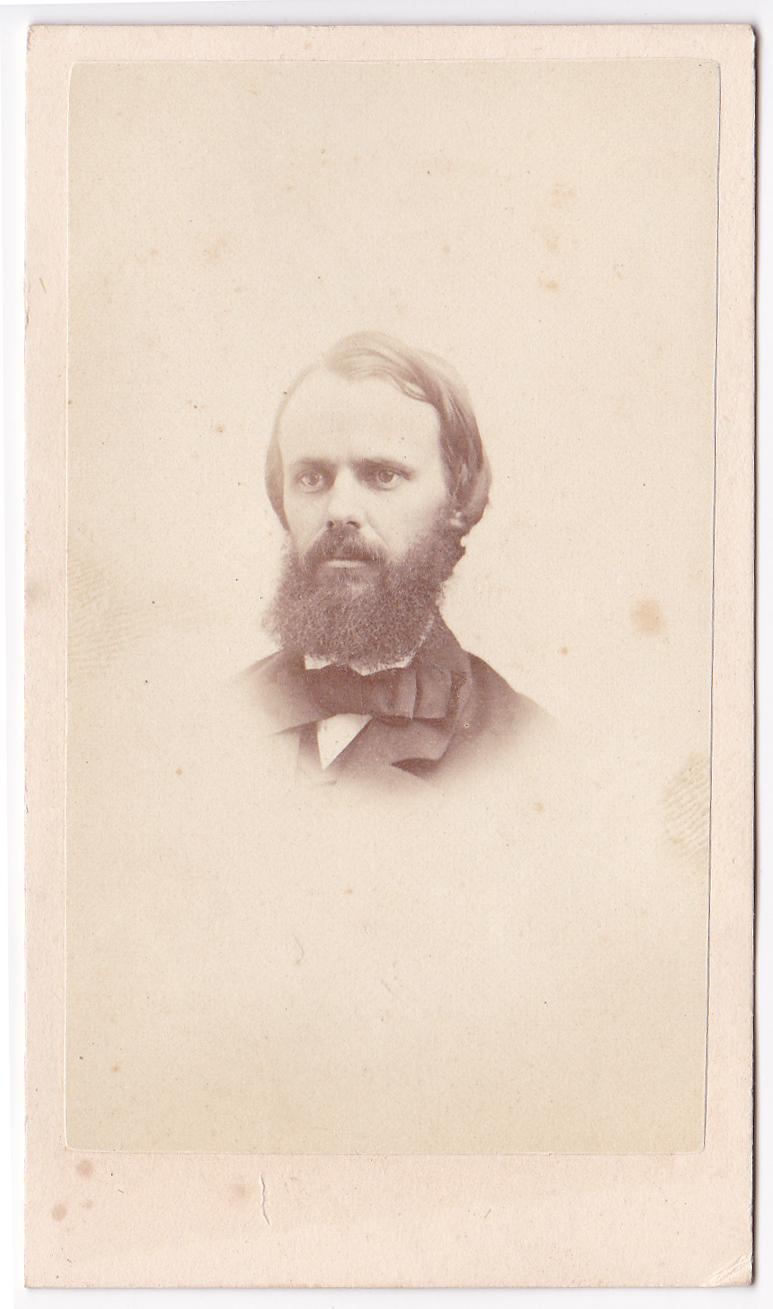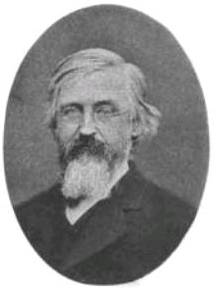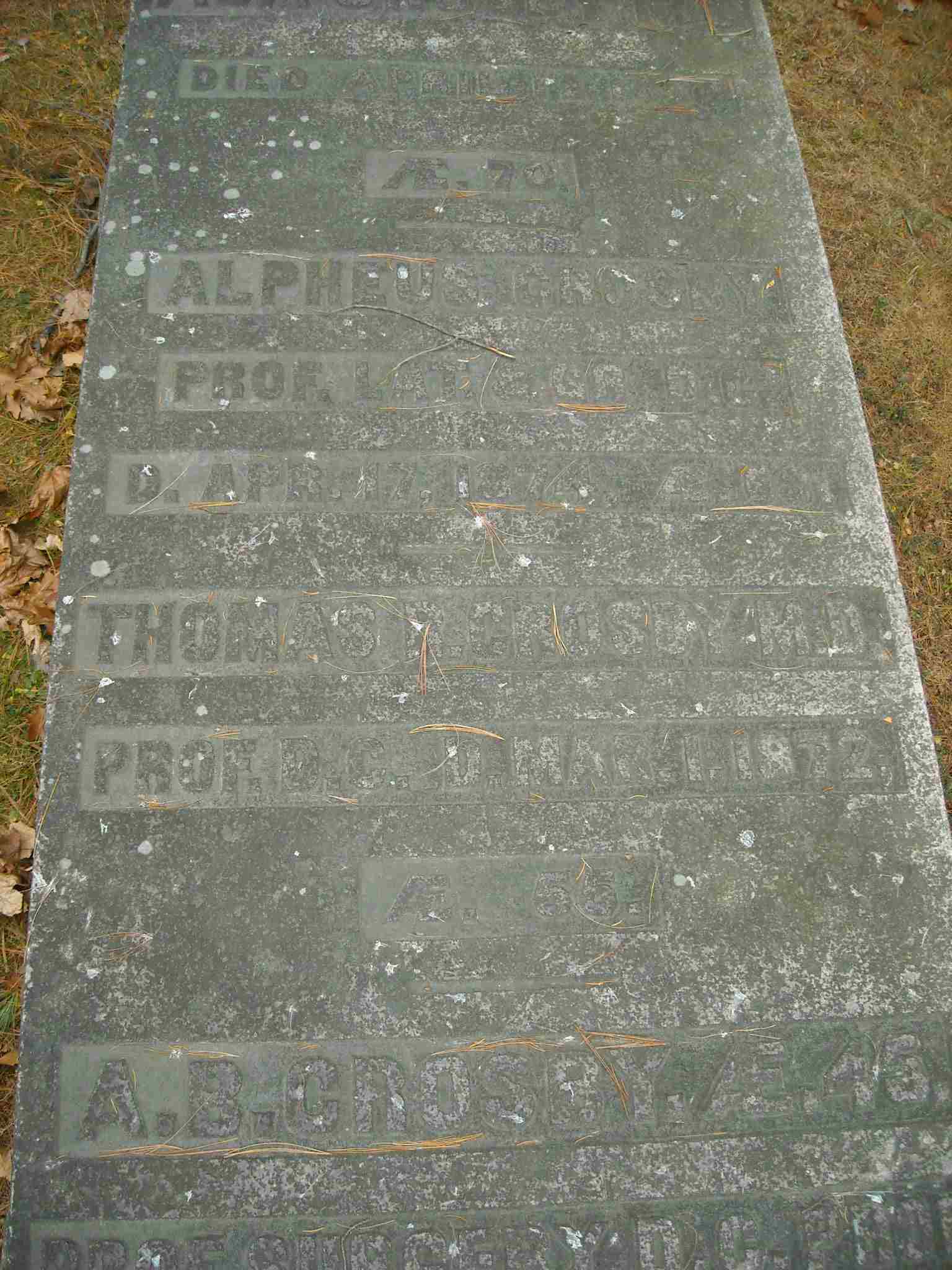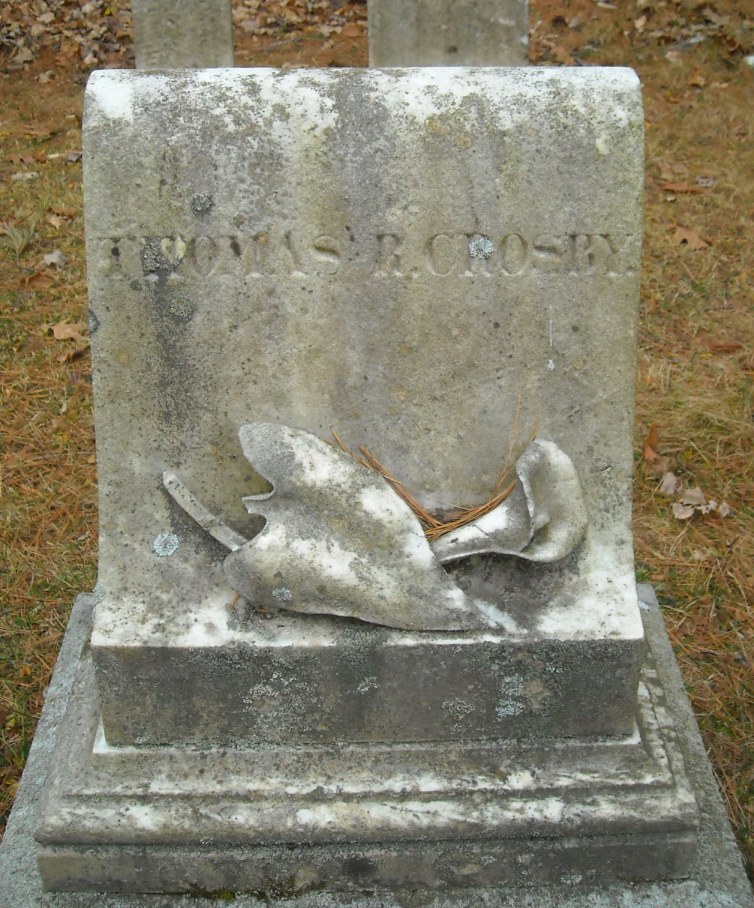During his boyhood, Gilmanton Academy was among the best of the many good Academies in New Hmpshire and his early education was better than that of his older brothers. He studied medicine while pursuing his Academic Course and graduated with honor at Dartmouth College, July 1841, receiving his medical degree from the same institution in the autumn of the same year. After riding a few months with his brother Dixi, he went to Campton, where he stayed but a short time and finally settled in Manchester in 1843. Here he entered at once upon a large practice, which would have been lucrative in the end had not an event occurred which for many years wrecked all his hopes of professional success. Sometime during the year he found himself the victim of lead poison in its worst form, and for ten years he suffered all the indescribable tortures of distorted joints, painters colic and broken health generally. Finding that he could not recover in Manchester where all the water was more or less tainted with lead, he removed to Hanover in 1852 where he remained until his death in the fifty-sixth year of his age.
After his health became so affected that he could not engage in active practice, he devoted his attention that he could not engage in active practice, he devoted his attention for some time to journalism, and instruction in the various branches of natural history. His favorite subject was chemistry as applied to agriculture, and he had made himself so proficient in this branch, that when the State Agricultural College went into operation, he was at once appointed professor of that important branch, and his labor upon earth was the hearing of a recitation upon the after noon of his fatal seizure.
Dr Crosby was also for some years a professor in the Norwich University, where he taught his favorite branch most acceptably. The pure air and pure water of the Connecticut valley had so good an effect upon his disease that about the year 1858 he once more offered himself for general practice, and the breaking out of the rebellion found him fully engaged in professional pursuits. A visit to a wounded relative at Fortress Monroe convinced him that he could endure the Southern climate, and he offered himself for examination before the Army Board at Philadelphia, and passed so creditably that he was at once commissioned as Brigade Surgeon and place in charge of Columbian College Hospital, near Washington. He found the hospital in a miserable condition, and made it his special duty to bring it up to the correct standard of what an army hospital should be. So successful was he that although he often asked to be relieved and detailed to duty in the field, his request was never granted, but he was retained in charge of this hospital until it was closed, receiving the brevet of Colonel United States Volunteers, as a mark of appreciation from Government when he was mustered out. In addition to his hospital work he was a member of a Board of Examiners for examining officers of colored regiments, and this duty occupied the middle hours of every week-day for two years. The lead poison had twisted and deformed his right wright and hand so that he only had the use of the thumb, the index and second fingers, while the wrist was firmly anchylosed in semiflexed position; fut for all that, Dr Crosby performed his own operations in the hospital.
At the close of the war, Dr Crosby returned to Hanover and entered once more upon general practice, devoting a portion of his time to teaching medical students and to the duties of his professorship in the Agricultural College.
Source:
- Transactions of the New Hampshire Medical Society by New Hampshire Medical Society (1871)
During his boyhood, Gilmanton Academy was among the best of the many good Academies in New Hmpshire and his early education was better than that of his older brothers. He studied medicine while pursuing his Academic Course and graduated with honor at Dartmouth College, July 1841, receiving his medical degree from the same institution in the autumn of the same year. After riding a few months with his brother Dixi, he went to Campton, where he stayed but a short time and finally settled in Manchester in 1843. Here he entered at once upon a large practice, which would have been lucrative in the end had not an event occurred which for many years wrecked all his hopes of professional success. Sometime during the year he found himself the victim of lead poison in its worst form, and for ten years he suffered all the indescribable tortures of distorted joints, painters colic and broken health generally. Finding that he could not recover in Manchester where all the water was more or less tainted with lead, he removed to Hanover in 1852 where he remained until his death in the fifty-sixth year of his age.
After his health became so affected that he could not engage in active practice, he devoted his attention that he could not engage in active practice, he devoted his attention for some time to journalism, and instruction in the various branches of natural history. His favorite subject was chemistry as applied to agriculture, and he had made himself so proficient in this branch, that when the State Agricultural College went into operation, he was at once appointed professor of that important branch, and his labor upon earth was the hearing of a recitation upon the after noon of his fatal seizure.
Dr Crosby was also for some years a professor in the Norwich University, where he taught his favorite branch most acceptably. The pure air and pure water of the Connecticut valley had so good an effect upon his disease that about the year 1858 he once more offered himself for general practice, and the breaking out of the rebellion found him fully engaged in professional pursuits. A visit to a wounded relative at Fortress Monroe convinced him that he could endure the Southern climate, and he offered himself for examination before the Army Board at Philadelphia, and passed so creditably that he was at once commissioned as Brigade Surgeon and place in charge of Columbian College Hospital, near Washington. He found the hospital in a miserable condition, and made it his special duty to bring it up to the correct standard of what an army hospital should be. So successful was he that although he often asked to be relieved and detailed to duty in the field, his request was never granted, but he was retained in charge of this hospital until it was closed, receiving the brevet of Colonel United States Volunteers, as a mark of appreciation from Government when he was mustered out. In addition to his hospital work he was a member of a Board of Examiners for examining officers of colored regiments, and this duty occupied the middle hours of every week-day for two years. The lead poison had twisted and deformed his right wright and hand so that he only had the use of the thumb, the index and second fingers, while the wrist was firmly anchylosed in semiflexed position; fut for all that, Dr Crosby performed his own operations in the hospital.
At the close of the war, Dr Crosby returned to Hanover and entered once more upon general practice, devoting a portion of his time to teaching medical students and to the duties of his professorship in the Agricultural College.
Source:
- Transactions of the New Hampshire Medical Society by New Hampshire Medical Society (1871)
Family Members
Advertisement
Explore more
Sponsored by Ancestry
Advertisement
